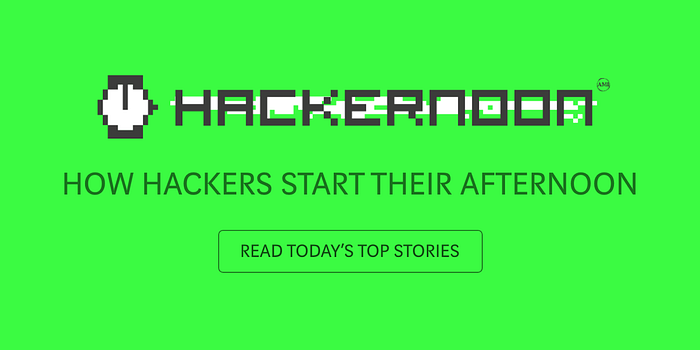Latest news about Bitcoin and all cryptocurrencies. Your daily crypto news habit.
When you were born, you joined an organization of other humans: your family.
You had a Mother and Father, even if you never met them.
Most of us were raised by these two, or a subset of them. Maybe your org had other people too, like Step-parents, Aunts, Grandparents, Brothers or Sisters.
You learned how to live in a group, with a group, as a part of a group. As you got older, you learned how to become more independent of this group.
You learned that sometimes being in a group can be comforting. And other times, it can be lonely.
That sometimes it was easy for your ideas to be heard. And other times… impossible.
You quickly learned who would take time to listen to your thoughts and your ideas. And you learned who usually didn’t.
You learned what you could control, what you couldn’t control, and things you could sometimes control if the situation was right.
And a nature and nurture combined to mold you into who you are today.
And all this taught you how to act in another type of org: your job.
From here, we could go many different ways, so this may turn into a series. But today, I want to go down a weird, mind-bending path.
Follow along and leave a comment, if you please.
Managers are “Daddy”, HR are “Mommy”
There are many ways to compare families and companies, but the first one that came to mind was the idea that in many companies, the managers occupy the Daddy-seat, and HR folks occupy the Mommy-seat.
Or maybe this isn’t so weird. After all, in 2014 the US Department of Labor reported that 76% of HR Managers are women. They also reported that 78% of Computer and IS Managers were men.
No surprises so far, right?
Now, let’s look at our traditional view of family orgs again. And again, this is the traditional view which will feel very 1950’s Americana, so hold with me.
In this 1950’s view, Daddies were mostly concerned with:
- Physical protection of the family and property
- Making money and providing for the family
- Making the big decisions
- Administering punishment
- Doing what’s best “in the long run”
- Accomplishing the goal, no matter what
And Mommies were mostly concerned with:
- Keeping the organization running smoothly
- Preparing food for the family
- Keeping the house clean and tidy
- Handling conflicts within the family
- Making everyone feels loved and valued
- Making sure things are fair between children
- Tending to sick family members
Looking at that list above, do you see any similarities between Daddies and Managers? Or, between Mommies and HR?
I do, but maybe it’s just me.
Where does that leave you?
But if you’re not a “Daddy” or a “Mommy”, what is your place?
You’re one of the children.
This might be why so many companies treat their employees like children.
It also might explain why so many employees act like children in various ways.
What to do about all this… weirdness
I’m not entirely sure. I think the first step is to look at your organization and behavior through this lens.
If you’re a manager, do you sometimes act like a “Daddy”?
If you’re in HR, do you sometimes act like a “Mommy”?
And, if you’re an individual contributor… well, you get the point.
I’ve been guilty of this for much of my career, on both sides of the equation.
And even if the managers and HR folks didn’t act in familial ways, if I saw myself as the child, I might view their behavior was “parental”.
I don’t think this is healthy company behavior, but I’m not surprised by it.
It might explain a myriad of organizational dysfunctions that many of us live with. I’ve got some examples of mistakes I saw, and made, which were influenced by this problem.
But let me close with this:
You are not your team’s parent. You are not your manager’s child.
With that in mind, start to observe the interactions around, and inside, you.
Consider that there are new options about how to act, and react. New possibilities about how you view yourself, your boss, and HR.
Even if all you do is see things differently, you’re on the path to building a better technical team.
The first org you ever joined was originally published in Hacker Noon on Medium, where people are continuing the conversation by highlighting and responding to this story.
Disclaimer
The views and opinions expressed in this article are solely those of the authors and do not reflect the views of Bitcoin Insider. Every investment and trading move involves risk - this is especially true for cryptocurrencies given their volatility. We strongly advise our readers to conduct their own research when making a decision.

